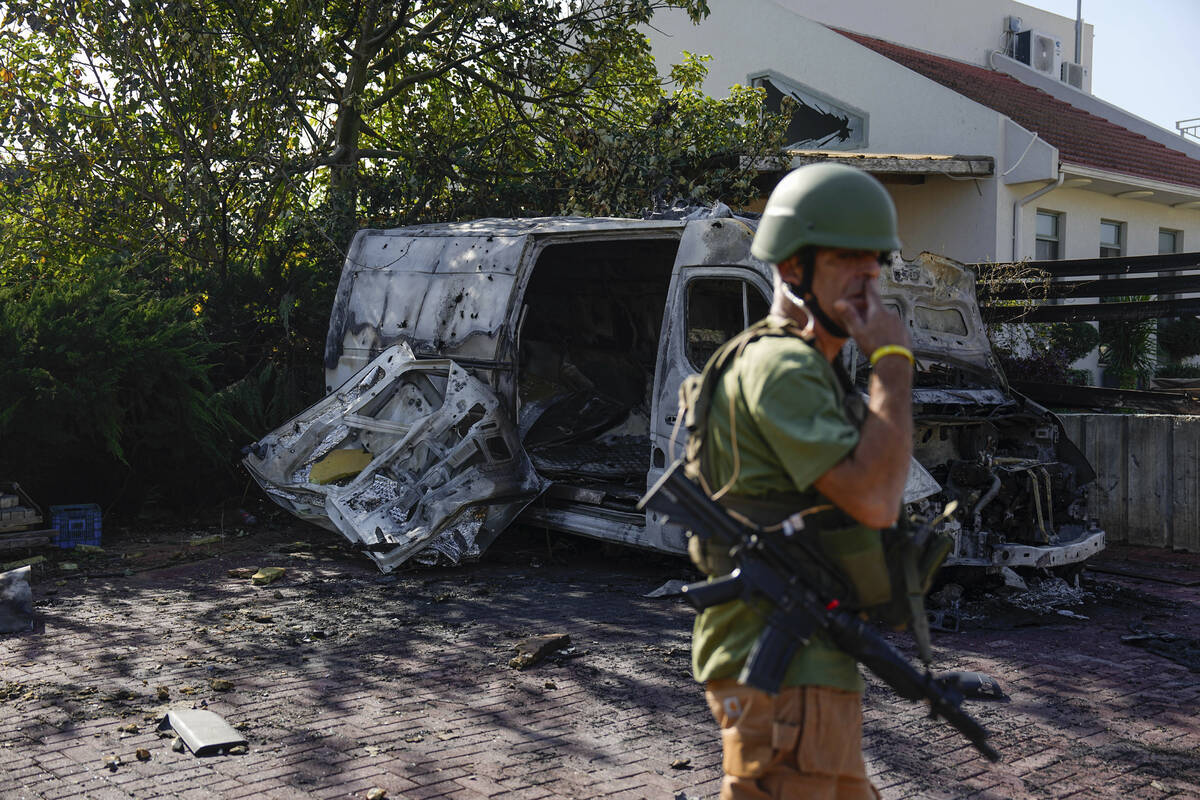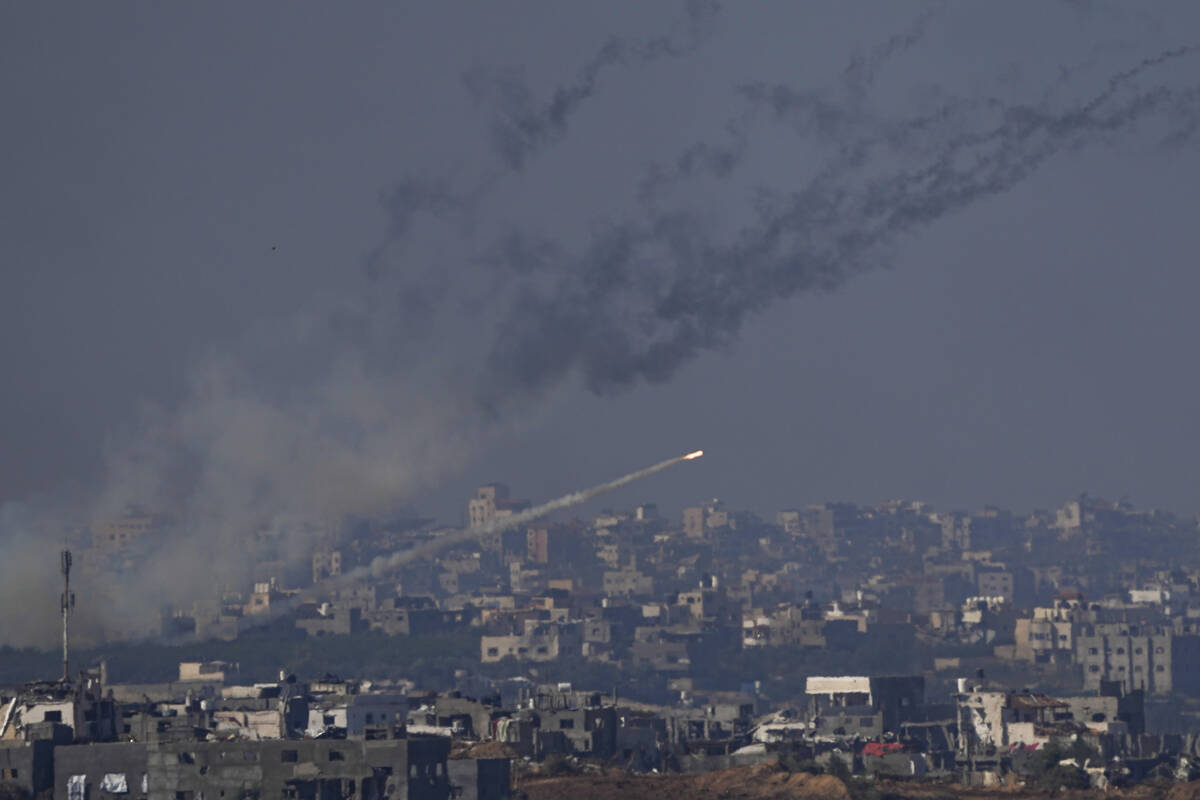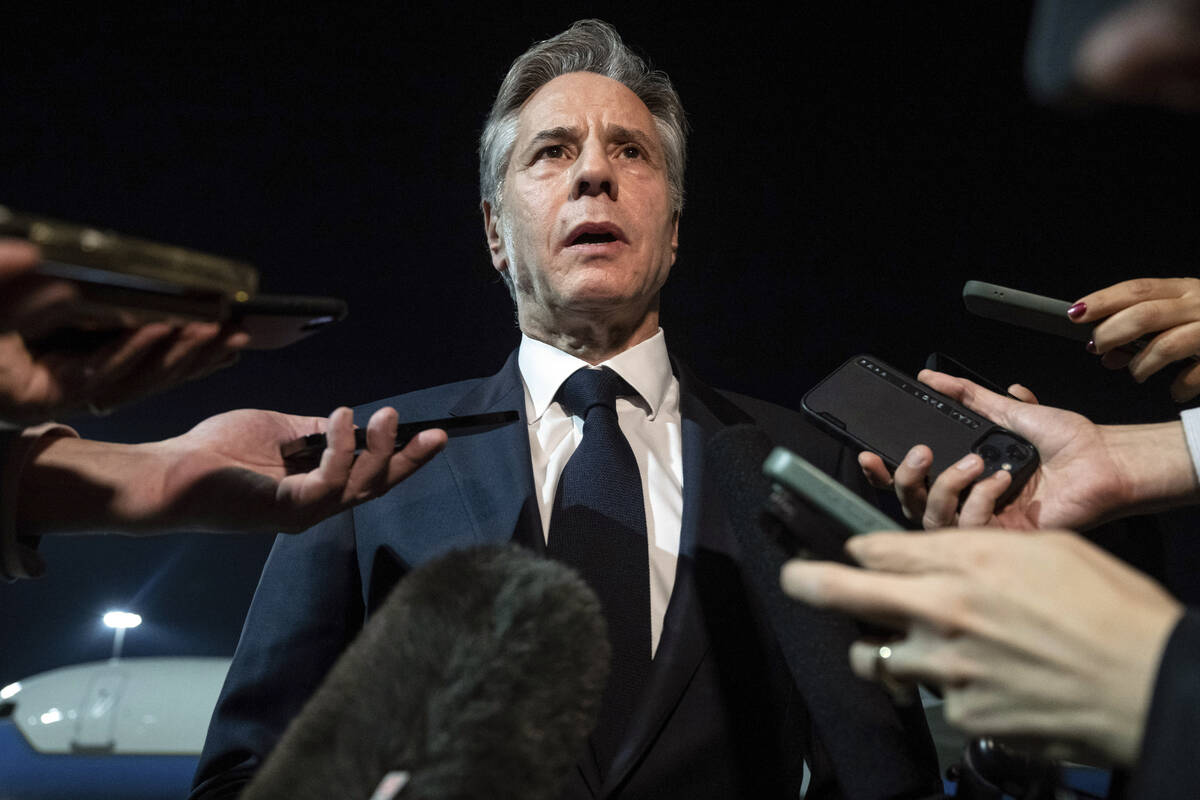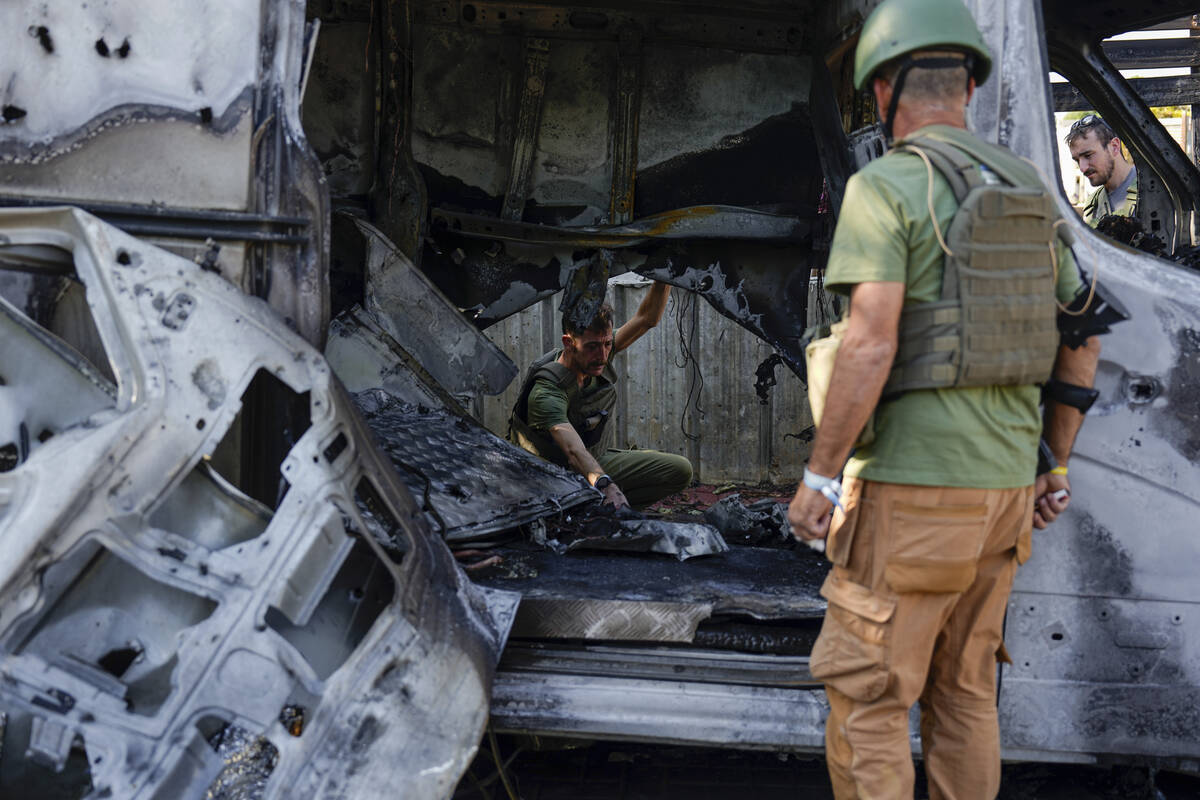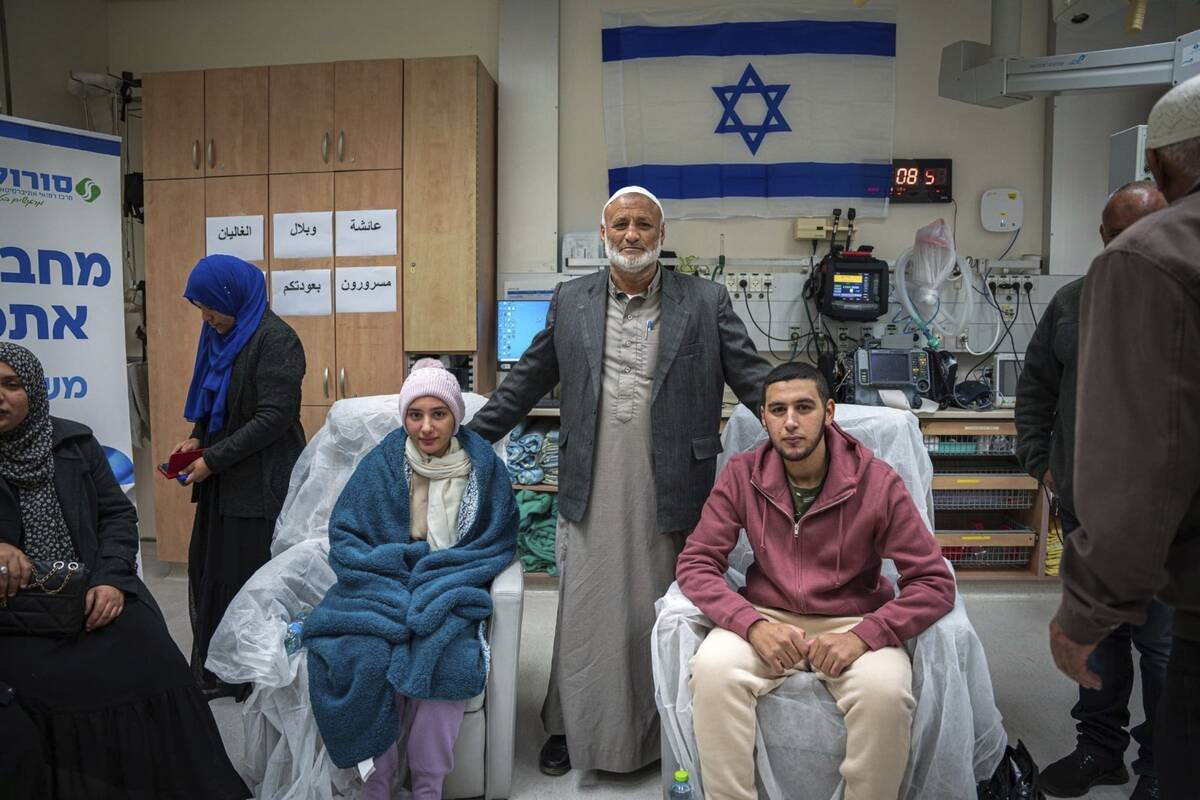Hostilities resume after Israel-Hamas truce ends
KHAN YOUNIS, Gaza Strip — Israel’s war with Hamas erupted again Friday, as airstrikes hit houses and buildings in the Gaza Strip minutes after a weeklong truce expired.
Terrorists in Gaza resumed firing rockets into Israel, and fighting broke out between Israel and Hezbollah terrorists operating along its northern border with Lebanon.
Black smoke billowed from the besieged territory, where Israel dropped leaflets over Gaza City and southern parts of the enclave, urging civilians to flee to avoid the fighting.
Renewed hostilities heighten concerns for about 140 hostages still held captive by Hamas and other terrorists, after more than 100 were freed during the truce. The Israeli army said Friday it had confirmed the deaths of four more hostages, bringing the total known dead to seven.
Qatar, which has served as a mediator along with Egypt, said negotiators were still trying to reach an agreement on restarting the cease-fire. Israel and Hamas traded blame for ending the truce.
A day earlier, Secretary of State Antony Blinken met with Israeli officials and urged them to do more to protect Palestinian civilians as they seek to destroy Hamas. Blinken was to meet Friday with Arab foreign ministers at global climate talks in Dubai.
Israeli Prime Minister Benjamin Netanyahu’s office said Friday that Israel “is committed to achieving the goals of the war,” including releasing the hostages and eliminating Hamas, which has ruled Gaza since 2007.
In response to the U.S. calls, the Israeli military released a map dividing the Gaza Strip into hundreds of numbered parcels. It asked residents to learn the number associated with their location in case of an eventual evacuation. It was not immediately clear where Palestinians would go, with no safe areas designated on the map.
Hours into the renewed bombardment, Israel said it had struck more than 200 Hamas targets.
The war began after the Oct. 7 attack by Hamas and other Palestinian terrorists, who killed about 1,200 people, mostly civilians, in southern Israel and took around 240 people captive. The New York Times reported that Israel’s military was aware of the Hamas plan to launch an attack on Israeli soil over a year before the devastating operation.
Since the war began, more than 13,300 Palestinians have died, according to Gaza’s Health Ministry, which does not differentiate between civilians and combatants.
Return to battle
About an hour before the cease-fire was to expire early Friday, Israel said it intercepted a volley of rockets fired from Gaza. Minutes after it expired, the military announced a resumption of combat operations, and strikes soon began.
In leaflets dropped in southern Gaza, Israel urged people to leave homes east of Khan Younis, warning that the southern town was now a “dangerous battle zone.” Other leaflets warned residents of several neighborhoods in Gaza City in the north to move south.
Hundreds of thousands of people fled northern Gaza to Khan Younis and other parts of the south earlier in the war.
No trucks carrying aid entered Gaza from Egypt on Friday, Palestinians authorities at the Rafah crossing said, after an increased flow of supplies during the truce.
The International Rescue Committee, an aid group operating in Gaza, warned the return of fighting will “wipe out even the minimal relief” provided by the truce.
In Washington, U.S. National Security Council spokesman John Kirby said that Israel blocked trucks from crossing into Gaza on Friday but that at the request of the U.S. government, it would allow some aid to enter.
Kirby said the U.S. would continue to push to increase the assistance of aid into Gaza at least up to the level of goods that entered during the pause.
Strikes in Khan Younis hit an apartment in a housing development and destroyed a large building. Strikes also hit near Gaza City in the north and in the central Gaza refugee camp of Maghazi.
Israel has said it is targeting Hamas operatives and blames civilian casualties on the group, accusing the terrorists of operating in residential neighborhoods. Israel says 77 of its soldiers have been killed in the ground offensive in northern Gaza. Israel says it has killed thousands of terrorists.
Hamas said it fired volleys of rockets from Gaza toward Israeli cities. White smoke trails could be seen over the Israeli town of Sderot on the border with northern Gaza after Israel’s missile protection systems activated.
In Lebanon, Hezbollah said Friday its fighters fired upon a group of Israeli soldiers along the border, the group’s first attack since the truce went into effect. It was not immediately clear if there were casualties.
Israel said a number of launches from Lebanon targeted military posts near the border, and others were directed toward the town of Kiryat Shmona but were intercepted. The military responded with artillery.
Collapsed truce
The end of the truce hit families of remaining hostages especially hard.
Meirav Svirsky told Israel’s Channel 12 that a released hostage relayed a message to her from her 38-year-old brother, Itai, who is still held hostage, confirming he is alive.
“His body is healthy but his mental state isn’t great,” she said. Meirav and Itai’s parents were killed on Oct. 7.
“They haven’t spoken about releasing the men, and they returned to fighting without exhausting the possibilities,” said Meirav, adding that she thinks “the state is responsible” for the fate of her brother. “From my perspective, every day when there is fighting in Gaza is putting him at risk.”
Netanyahu said Hamas had violated the terms of the truce. “It has not met its obligation to release all of the women hostages today and has launched rockets at Israeli citizens,” he said in a statement.
Hamas blamed Israel, saying in a statement that it had rejected all offers Hamas made to release more hostages and bodies of the dead.
Senior Hamas official Osama Hamdan told The Associated Press in Beirut that Hamas refused to agree to an Israeli list of 10 female hostages to release because they were soldiers seized at military posts.
Hamas was expected to set a higher price for releasing Israeli soldiers and male hostages, and negotiations for an extension grew tougher with few women and children hostages remaining in Gaza.
During the truce, which began Nov. 24, Hamas and other terrorists in Gaza released more than 100 hostages in return for 240 Palestinians freed from prisons in Israel. Virtually all from both sides were women and children.
A total of 81 Israelis, including dual nationals, were freed. Another 24 hostages — 23 Thais and one Filipino — were also released, including several men.
The 240 Palestinians released were mostly teenagers accused of throwing stones and firebombs during confrontations with Israeli forces. Several were women who were convicted by military courts of attempting to attack soldiers.
———
Jeffery reported from Cairo and Frankel from Jerusalem. Associated Press writers Wafaa Shurafa in Deir al-Balah, Gaza Strip; Lee Keath in Cairo; and Matthew Lee in Dubai, United Arab Emirates, contributed.



